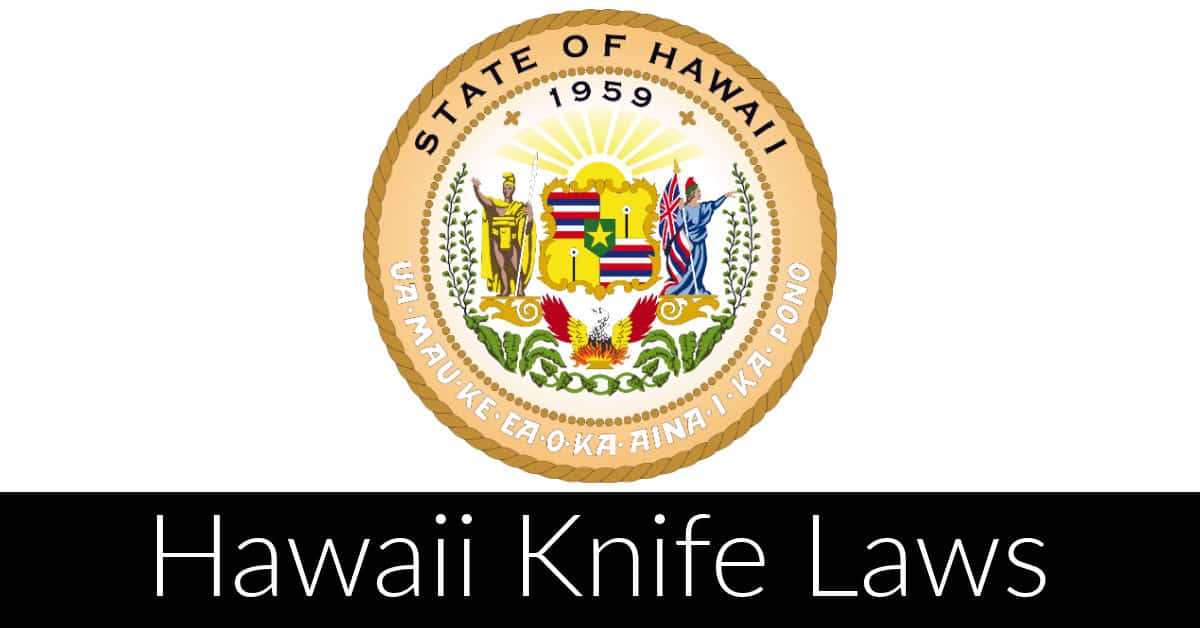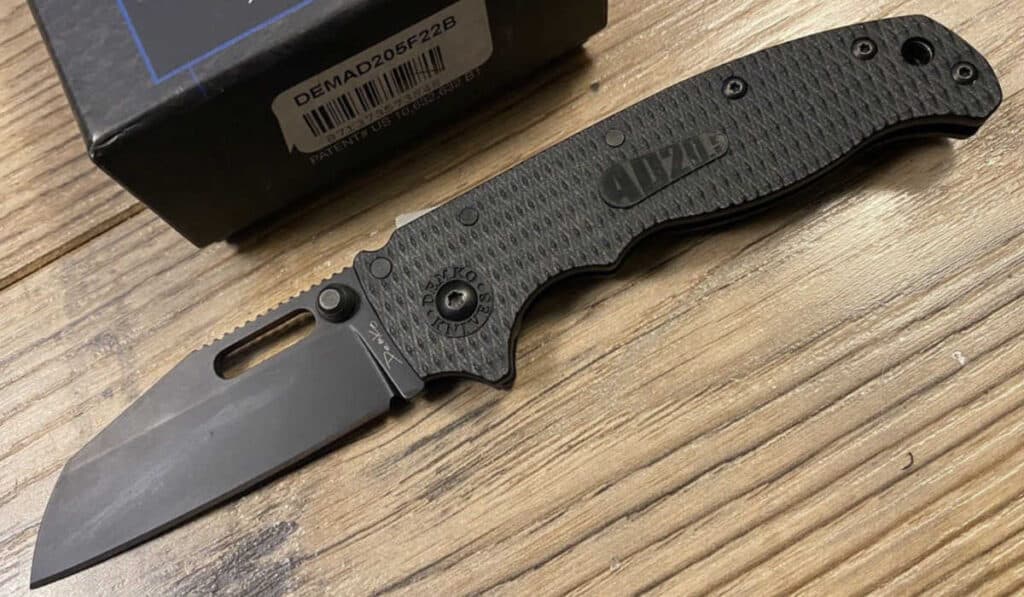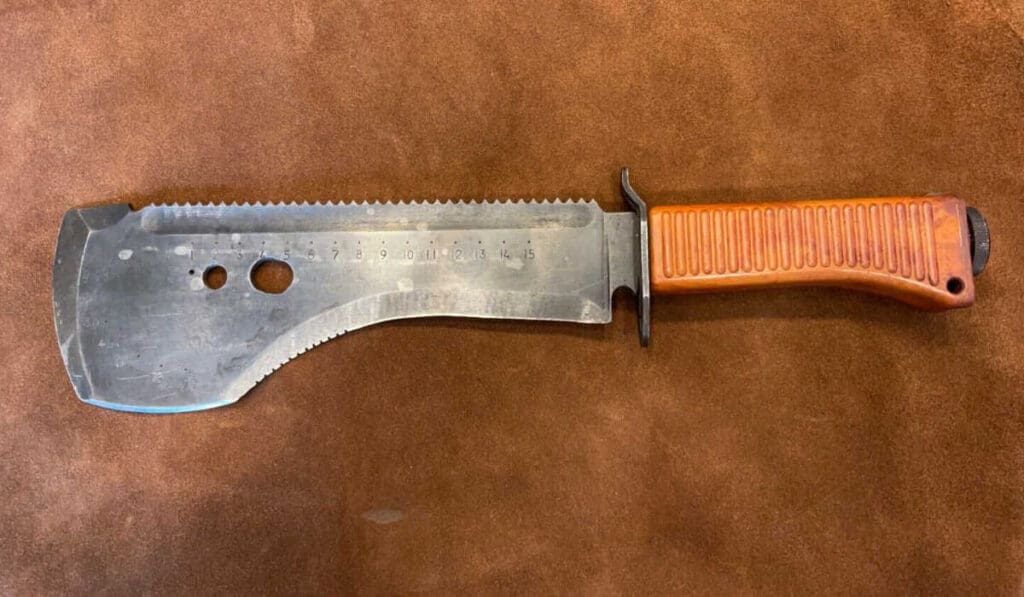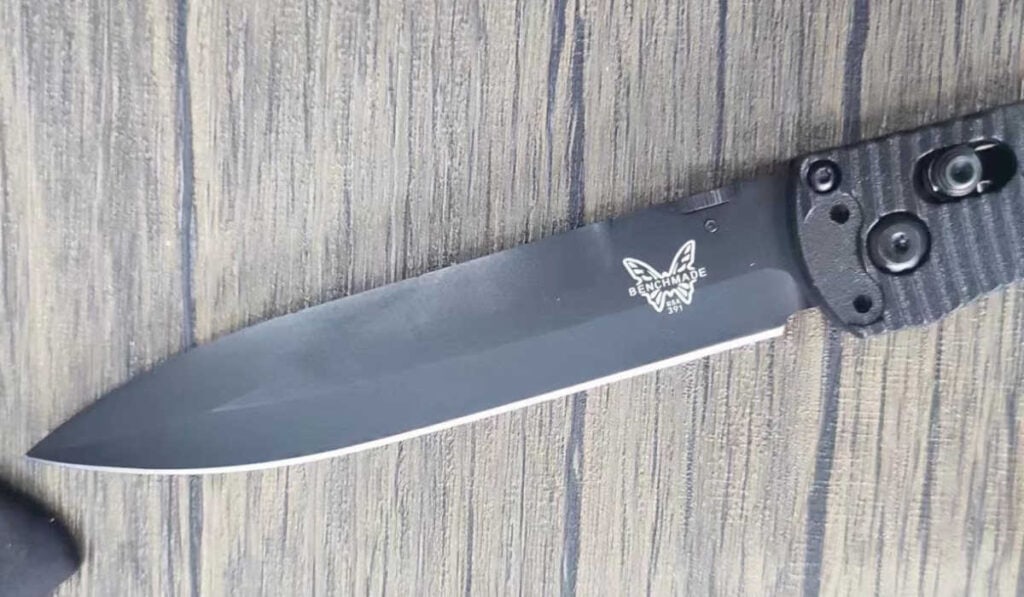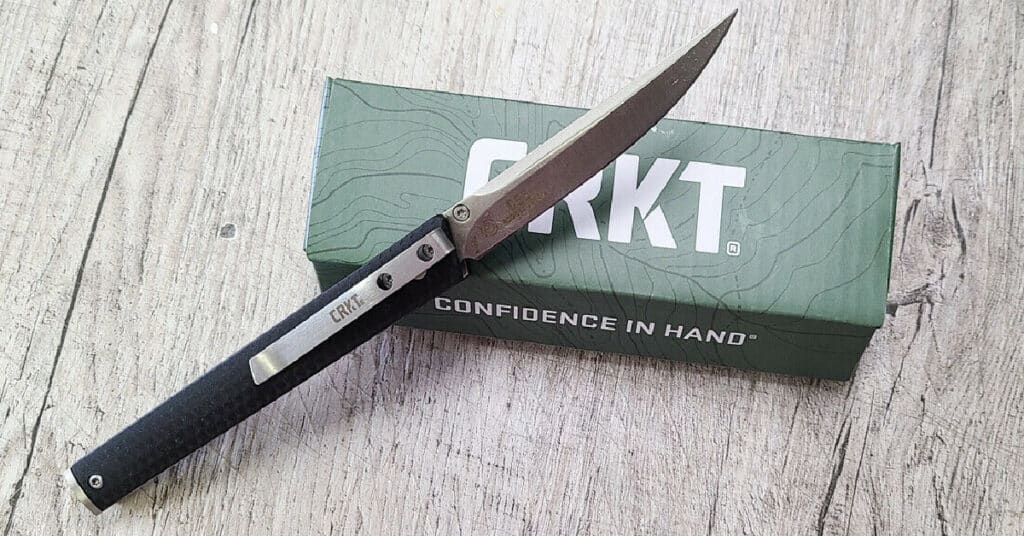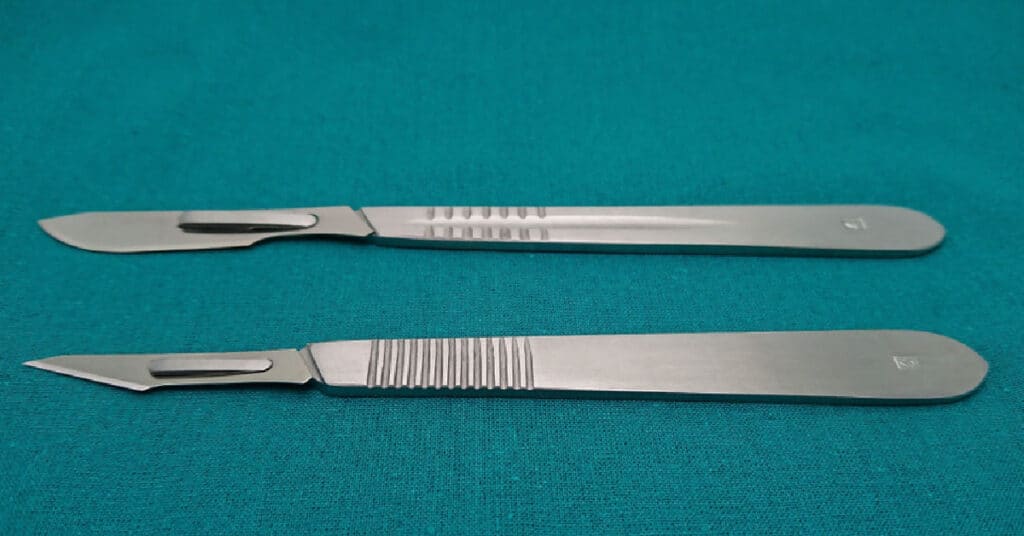Last updated on October 20th, 2023 at 08:18 pm
As an Amazon Associate I earn from qualifying purchases.
Hawaii is one of the top destinations for tourists in the United States. Therefore, it is natural to expect the state to have strict rules on weapons to protect residents and visitors within the state. Right?
Hawaii knife laws are somewhat specific but also unclear in some sections. This article will attempt to simplify these laws to help you navigate the legal side of blades (and stay out of trouble).
Does Hawaii Have Statewide Preemption Laws?
Hawaii doesn’t have statewide preemption laws, implying local counties within the state can impose stricter knife laws. However, as of the time of this article, no city, town, or county within Hawaii has established different knife laws, which is a rarity in comparison to other states. It means that Hawaii’s state laws are uniformly applied. Always check with local law enforcement for the most current regulations.
Legal Hawaiian Knife Definitions
Over the years, the Hawaiian court has had to define what constitutes a dangerous weapon and describe the appearance of specific knives. Here are some important legal definitions:
- Deadly or dangerous weapon: According to the law, it is an instrument whose sole design and purpose are to inflict bodily harm or death. In another case, a deadly or dangerous weapon is defined as something primarily designed as a weapon or diverted from its typical use and prepared for combat.
- Diver’s knife: In a case in 1975, a diver’s knife with a double-edged blade of 6.5 inches was not considered a dagger or a dangerous weapon as it was designed for underwater purposes1.
- Other knives that are not considered deadly weapons: Hawaii’s definition includes canes, kitchen knives, and nunchaku sticks (nunchuks).
Hawaii Knife Carry Laws by Type
Hawaii has specific laws regarding the carry of certain types of knives. It’s illegal to carry dirks or daggers, whether concealed or openly. Violation of these laws can lead to criminal charges.
Carrying any knife on school property is strictly prohibited, aligning with Hawaii’s zero-tolerance policy on weapons in schools.
While it’s generally legal to carry open or concealed knives that aren’t classified as deadly or dangerous weapons, such as diver’s knives, canes, and kitchen knives, this is only true if the knife isn’t diverted from its normal use.
Legal Knives in Hawaii
In Hawaii, you can own any knife except for switchblades and butterfly knives, as defined by law. Note, however, that the below list is not exhaustive and some knives may be subject to additional regulations:
Illegal Knives in Hawaii
Switchblade and butterfly knives are specifically prohibited under Hawaii law. It is illegal to manufacture, sell, transfer, possess, or transport these types of knives within the state.
Hawaii Knife Length Laws
Hawaii does not have a specific law mentioning knife length, which allows people to carry larger knives such as cane knives or machetes when hiking or camping to clear trails and campsites.
Age Requirements
While Hawaii law doesn’t explicitly address the legal age to own, buy, or carry a knife, it is generally accepted that individuals must be at least 18 years of age to purchase a knife. Minors may be prohibited from buying, possessing, or carrying certain types of knives without parental consent or supervision.
However, no one, regardless of age, can carry a deadly or dangerous weapon without proper authorization. Selling, manufacturing, transferring, and transporting prohibited knives like switchblades and butterfly knives are illegal for all ages.
Hawaii Concealed Carry Knife Laws
Can You Open Carry a Knife in Hawaii?
Open carry knife laws in Hawaii permit carrying knives that are not considered deadly or dangerous weapons, including certain types of kitchen knives, canes, diver’s knives, and nunchaku sticks. However, this is conditional upon the knife being utilized for its intended purpose and not being diverted for combat or harm.
However, certain types of knives, including switchblades and butterfly knives, are outright illegal to own, carry, sell, manufacture, or transport.
Can You Conceal Carry a Knife in Hawaii?
You can open carry or conceal carry knives that are not considered deadly or dangerous, but this is contingent on the knife being used for its intended purpose. Carrying any knife on school property is prohibited.
Hawaii Knife Law FAQs
Can you carry a knife in Hawaii?
Yes, you can carry a knife in Hawaii, but with certain restrictions. Pocket knives and knives meant for use as tools are generally legal to carry both open and concealed.
Are butterfly knives illegal in Hawaii?
Are switchblades illegal in Hawaii?
Are OTF knives legal in Hawaii?
Hawaii State Knife Law References
Official Sources For Hawaii’s Knife Laws
- Hawaii Revised Statutes, Chapter 703
- Section 712-1201 of the Hawaii Revised Statutes
- Section 134-51 to 134-53 of the Hawaii Revised Statutes
Significant Court Cases:
| Case Title | Summary |
|---|---|
| Teter v. Lopez | A Ninth Circuit panel struck down Hawaii’s ban on butterfly knives in 2023. |
| State v. Ogata | In 1977, the case clarified the law on carrying a dagger or dirk, whether concealed or openly displayed. |
| State v. Giltner | In 1975, the Hawaii Supreme Court found a “diver’s knife” was not a “dagger” under the statute. |
Timeline of Major Changes in Hawaii’s Knife Law History:
- 1959: Hawaii enacts § 134-52, prohibiting switchblade and gravity knives, following the 1958 Federal Switchblade Act.
- 1975: In State v. Giltner, the Hawaii Supreme Court clarifies the definition of a dagger, with a case involving a diver’s knife.
- 1977: State v. Ogata case clarifies the law regarding carrying a dagger or dirk, whether concealed or openly displayed.
- 1999: Hawaii bans butterfly knives under § 134-53.
- 2022: A U.S. Supreme Court decision impacts knife laws, cited in a later Hawaii case.
- 2023: A Ninth Circuit panel overturns Hawaii’s ban on butterfly knives in Teter v. Lopez, citing inconsistency with historical tradition of weapon regulation.
Conclusion
As an Amazon Associate I earn from qualifying purchases.

